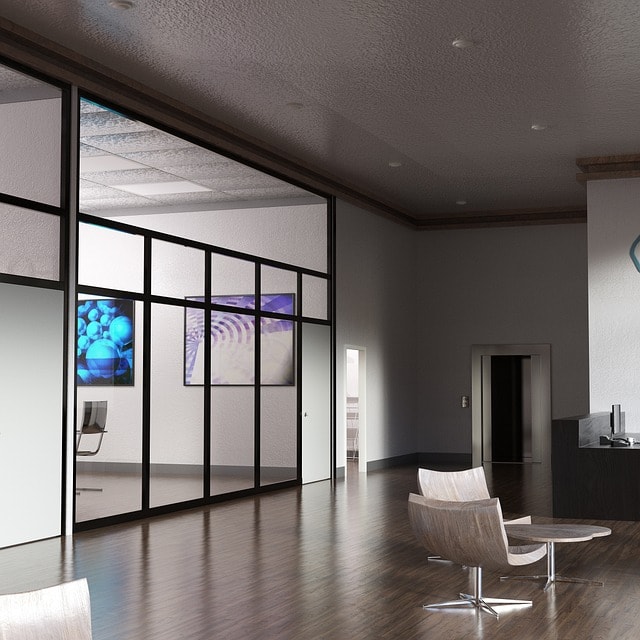What are SBA Commercial Real Estate Loans?

SBA commercial real estate loans, backed by the Small Business Administration (SBA), help small businesses buy or improve properties. They also make it easier for small companies to secure financing.
Two main types of SBA loans support real estate purchases: SBA 504 and SBA 7(a). These real estate investment loans allow businesses to purchase real estate for operational use. For example, a bakery can buy a building to set up its shop. This helps the bakery avoid high rent costs in the long run. Companies can use these loans to invest in their future without large upfront payments.
SBA 7(a) Loans for Commercial Real Estate
Features:
- Loan amounts: Up to $5 million.
- Interest rates: Starting at Prime + 2.75%.
- Terms: Up to 25 years for commercial real estate.
- Funding speed: 8+ weeks.
SBA 7(a) loans are designed to help small businesses access financing for various purposes, including working capital, equipment purchases, and real estate acquisitions. When using an SBA 7(a) loan to purchase commercial property, borrowers can benefit from lower down payment requirements, longer repayment terms, and competitive interest rates.
This type of loan can be used to acquire properties such as office buildings, retail spaces, warehouses, or industrial facilities. By leveraging an SBA 7(a) loan for commercial real estate purchases, small business owners can secure the funding needed to expand their operations and grow their enterprises.
SBA 504 Loans for Commercial Real Estate
- Loan amounts: Up to $5.5 million.
- Interest rates: Typically equal to 3% of the loan amount.
- Terms: Up to 25 years for commercial real estate.
- Funding speed: 8+ weeks.
SBA 504 loans are another option for financing commercial real estate. These loans are designed to help small businesses acquire major fixed assets, such as land or buildings, at favorable terms. One fundamental rule for SBA 504 loans is that they must be used for specific purposes, such as purchasing land or buildings, constructing new facilities, or renovating existing properties.
Additionally, borrowers must work with a Certified Development Company (CDC) to secure an SBA 504 loan. CDCs are nonprofit organizations that work with the SBA to provide financing to small businesses. They play a crucial role in the SBA 504 loan process by helping borrowers navigate the application process and ensuring compliance with program requirements. Working with a CDC can help small businesses access the capital they need to invest in commercial real estate and grow their operations.
Many business owners choose SBA loans over traditional bank loans. They often have lower interest rates and longer repayment terms, making them more manageable for small businesses.
Can I use an SBA Loan to purchase an Investment Property?

SBA loans cannot be used to buy properties solely for investment. These loans are designed for business purposes, which means they support businesses purchasing real estate for their operations, not just for renting out.
Understanding the difference is crucial. An SBA loan can finance a property if it serves a business need. For example, a restaurant owner can buy a building to operate their restaurant. However, they cannot use an SBA loan to buy a house or apartment just to rent it out.
Knowing the restrictions of SBA loans before applying is essential. Investors should be aware of these rules to avoid wasting time and effort.
Some lenders have a potential loophole. Most SBA lenders only require 51% owner occupancy on a commercial property. This means that if you occupy at least half of the space for your own business, you can rent out the remaining area. This setup allows investors to generate income while still meeting the loan requirements.
What are the requirements for SBA Commercial Property Loans?

SBA loan qualifications vary by lender and loan type. Approved businesses we work with here at UCS typically meet these minimums:
- Credit score: 650+.
- Time in business: 2+ years.
- Annual revenue: $360k+.
The US Small Business Administration also sets some basic requirements, which include:
- Be a for-profit business.
- Do business and be physically located in the US or its territories.
- Have invested personal time and money in the business.
- Exhaust all other financing options (SBA loans are “last resort financing.”)
These rules have some nuances and exceptions. For example, a for-profit subsidiary of a nonprofit would be eligible.
Additional Rules for SBA 504 Loans
Small businesses applying for an SBA 504/CDC loan also must meet additional rules, such as:
- A tangible net worth of less than $15 million.
- An average net income of less than $5 million for the last 2 years (after federal income taxes).
- Qualified management experience.
- A feasible business plan.
- The ability to repay the loan (determined by cash flow).
Down Payments
Both the SBA 7(a) and 504 loan programs for commercial real estate require a down payment between 10% and 30%. The exact down payment amount depends on the lender, the loan amount, and your creditworthiness.
What are the benefits of SBA Loans for Commercial Property?

SBA loans offer long-term, fixed-rate financing. This means businesses can better plan their budgets, as fixed rates do not change over time. This stability helps businesses manage their expenses effectively. In addition, SBA loans offer lower interest rates than many business loan options.
Another advantage is lower down payment requirements. Traditional loans often require a sizeable down payment. However, SBA loans may need only 10% to 20%. This allows more cash flow for other business needs. With this extra working capital, businesses can invest in upgrades or marketing.
SBA loans also help with property acquisition. Businesses can buy commercial properties that increase in value over time. A well-located property can attract more customers, leading to higher sales and profits.
The Small Business Administration’s guarantee makes lenders more willing to approve loans. This is especially helpful for new businesses struggling to get funding otherwise.
What are the drawbacks of SBA Loans for Commercial Property?

SBA loans have some cons that potential borrowers should consider. The application process can be lengthy. It often takes several weeks or even months to get approval. This delay can be frustrating for those who need quick funding.
Strict eligibility criteria exist. Not everyone may qualify for these loans. Borrowers must meet specific credit scores and business requirements.
Funds from SBA loans cannot be used for speculative investments, which means you cannot use them to buy properties solely for rental income. The loan is intended for properties where the borrower will operate a business, which must occupy a significant portion of the property. This requirement limits options for investors who want to buy purely rental properties.
Another drawback is the personal guarantee needed from the borrower. This means that if the business fails, personal assets may be at risk. Borrowers should carefully weigh these factors before applying for an SBA loan.
SBA Commercial Real Estate Loan Pros & Cons

Pros:
- Lower down payment requirements compared to traditional loans.
- Longer repayment terms available, making monthly payments more manageable.
- Competitive interest rates.
- Can be used for a variety of commercial property types.
- SBA guarantees a portion of the loan, reducing risk for lenders.
Cons:
- Strict eligibility requirements may limit who can qualify.
- Lengthy application process with extensive documentation required.
- Personal guarantees and collateral may be necessary.
- Cannot be used for residential property or solely investment properties.
- Potential for slower approval process compared to traditional loans.
How can I apply for an SBA Commercial Real Estate Loan?

United Capital Source has partnerships with selected SBA lenders. You can apply for an SBA loan through us with the following steps:
Step 1: Make Sure You Qualify
If you’re looking for long terms and the lowest possible interest rate, make sure you fulfill the general requirements with flying colors. Your credit score should be well over 650-700, and your cash flow should be highly consistent month-to-month.
Also, since SBA Loans are designed for large-scale investments, you should be able to support your desired investment with sufficient data. This is the only product where the funds’ purpose plays a considerable role, regardless of where you apply.
Step 2: Gather Your Documents
SBA Loans require the following documents and information:
- Driver’s License.
- Business license or certificate.
- Voided Business Check (for business bank account information).
- Bank Statements.
- Credit Report/Statement of Personal Credit History.
- Business Tax Returns.
- Credit Card Processing Statements.
- Personal Tax Returns – 3 Years.
- Business Tax Returns – 3 Years.
- Business Plan (Not in all cases).
- Personal Financial Statement.
- List of Real Estate Owned.
- Debt Schedule/Loan/Rent/Lease Documentation.
- Deeds/Title/Ownership documentation for any collateral/Security.
- Current Profit & Loss Statements and Balance Sheet Year-to-Date.
- A/R and A/P Reports.
- United Capital Source 1 Page Loan Application.
Step 3: Fill Out the Application
You can begin the application process by calling us or filling out our one-page online application. Either way, you’ll be asked to enter the information from the previous section along with your desired funding amount.
Step 4: Speak to a Representative
Once you apply, a representative will contact you to explain the repayment structure, rates, and terms of your available options. This way, you won’t have to worry about surprises or hidden fees during repayment.
Step 5: Receive Approval
SBA Loans through our network generally take 3-5 weeks to process. Once approved and your file is closed, funds should appear in your bank account in a few business days.
Frequently Asked Questions

Here are the most common questions about SBA loans for rental property.
Why doesn’t the SBA allow Investment Property Loans?

The SBA focuses on supporting small businesses, helping entrepreneurs grow and create jobs. Allowing loans for investment properties would shift this focus. The SBA wants to ensure that its funding goes to businesses that need it for operations, not for speculative real estate investments.
Small businesses need funding for equipment, inventory, or hiring employees. These areas directly impact growth and stability. When funds go toward operational expenses, they create jobs and stimulate the economy. This aligns with the SBA’s mission.
Can I rent out the remaining space in a Commercial Property with an SBA Loan?

Renting out extra space in a commercial property financed by an SBA loan is possible under certain conditions. The SBA guidelines require that the borrower maintain primary occupancy for their business operations, which means the business must occupy at least 51% of the property.
A business that occupies less than this amount risks violating SBA regulations. Violating these rules can lead to severe consequences, including loan default. Therefore, it is essential to ensure that renting out space does not interfere with the primary business activities.
Any rental income generated must be reported and should not exceed the allowable limits the SBA sets. Adhering to SBA regulations is crucial. It helps protect your investment and ensures continued access to funding. Failing to comply can jeopardize your loan status, leading to potential financial losses.
Are there Business Loans besides SBA loans for Investment Property?

Property investors seeking business loans for investments have multiple options outside the SBA loan program. Here are some small business loans to consider.
Traditional Business Loans
Traditional business loans from a bank or credit union are a common choice for financing rental properties. These loans often have fixed interest rates and set repayment terms.
Banks typically require a high personal credit score (670+) and a stable income to qualify. Your business typically has to be a credit union member to apply there. In addition, approval and funding for traditional business loans from banks or credit unions can take several weeks.
Alternative Business Loan Options
Alternative business loans for investment properties are a popular choice for real estate investors looking to secure financing quickly. Online lenders often provide streamlined application processes and fast funding times, making them ideal for seizing time-sensitive investment opportunities.
However, it’s important to note that alternative business loans for investment properties typically come with higher interest rates than traditional loans. This is because lenders are taking on more risk by providing funding for investment properties, which may not have the same level of stability or collateral as other types of businesses. Despite the higher rates, many investors find that the speed and flexibility of alternative business loans make them a valuable tool for growing their real estate portfolios.
Real Estate Investment Loans
Real estate investment loans are a popular alternative to SBA loans for established real estate investors looking to expand their portfolios. Some lenders offer these specialized loans specifically to fund real estate investments.
Some of the different types of real estate investment loans available include fix-and-flip loans, which provide short-term financing for purchasing and renovating properties to sell them for a profit quickly. Another option is rental property loans, designed for investors looking to purchase or refinance properties to rent out for passive income.
Commercial real estate loans are also available for investors looking to purchase or refinance commercial properties such as office buildings, retail spaces, or multifamily housing. These real estate investment loans offer flexibility and tailored financing options to meet the unique needs of real estate investors.
Hard Money Loans
Hard money loans for real estate investment are typically short-term, high-interest loans secured by the property itself. These types of loans are often used by real estate investors who need quick financing or may not qualify for traditional bank loans. Hard money lenders focus more on the value of the property rather than the borrower’s credit history.
SBA Loans for Rental Property – Final Thoughts

SBA loans are often considered the gold standard of small business financing. While loan funds cannot be used to purchase property solely for investment purposes, they do provide funding for owner-occupied commercial real estate.
Since your business is only required to occupy 51% of the commercial property, you could potentially rent out the remaining space. This creates the opportunity to secure space to conduct business and generate some additional passive income.
However, it’s crucial that you know and understand the rules and limitations to avoid violating the loan terms. Report any rental income, review your loan agreement, and discuss the process with your lender to avoid issues or penalties.
Contact us if you have more questions about rental property business loans or to apply for a small business loan. Our alternative funding experts can help you find the best financing program for your business needs.












